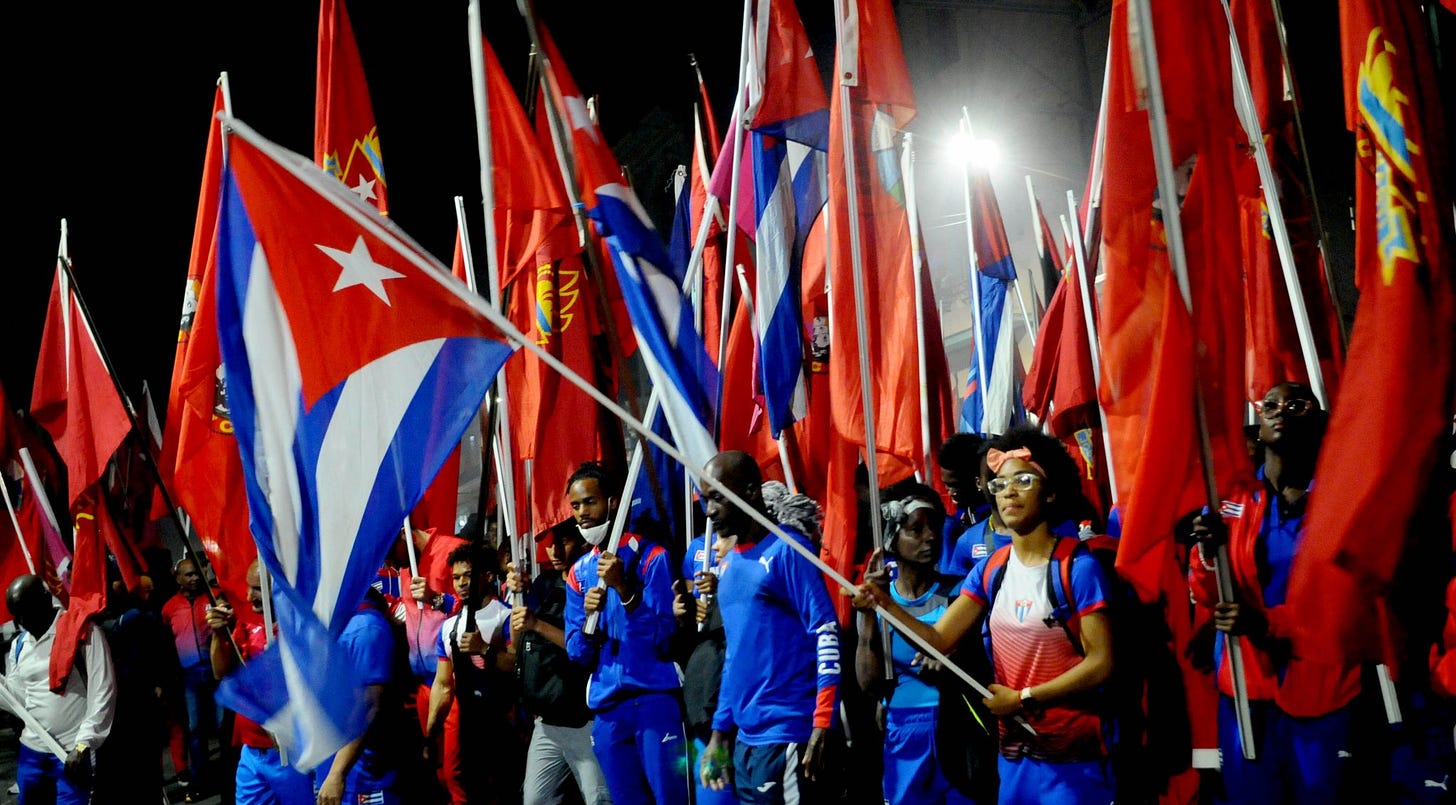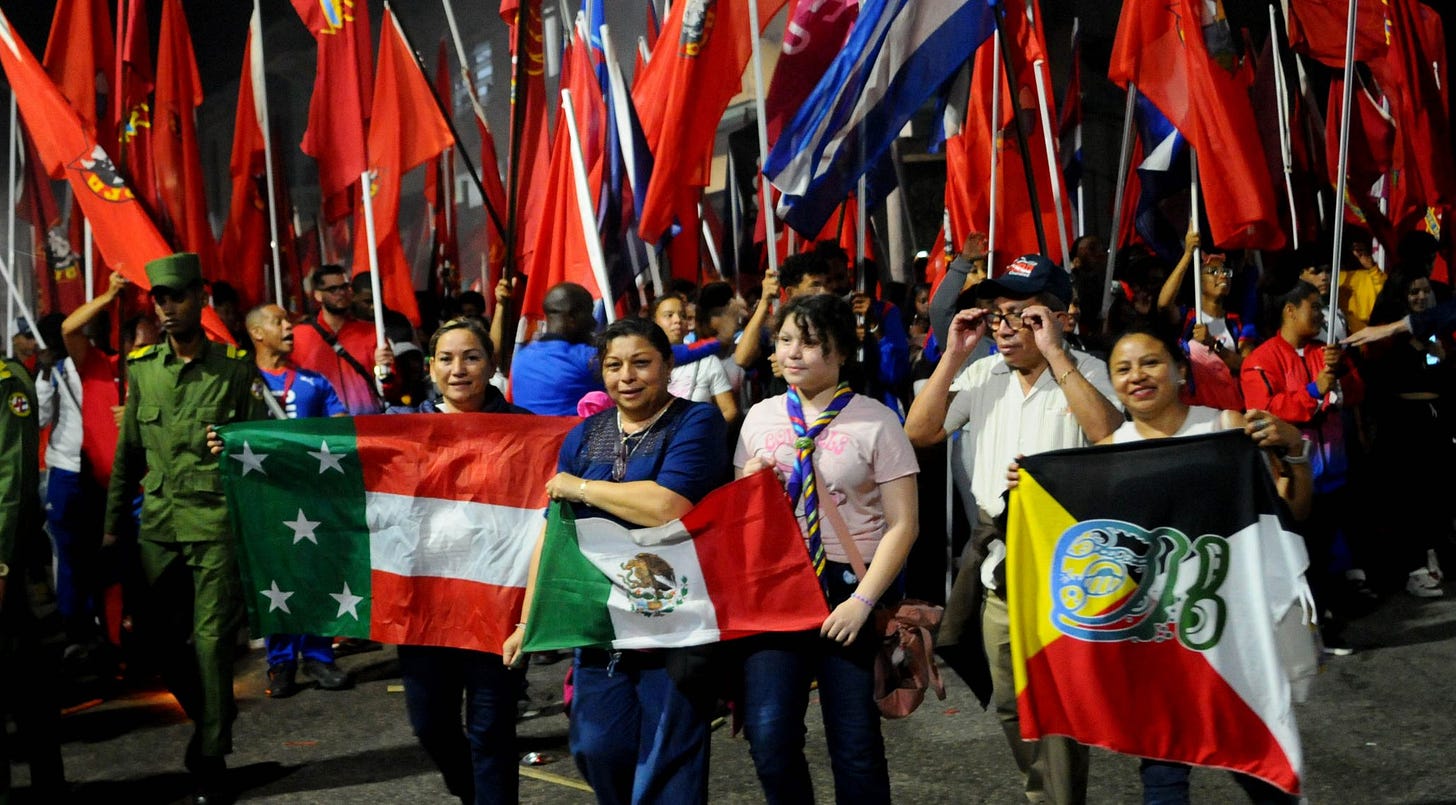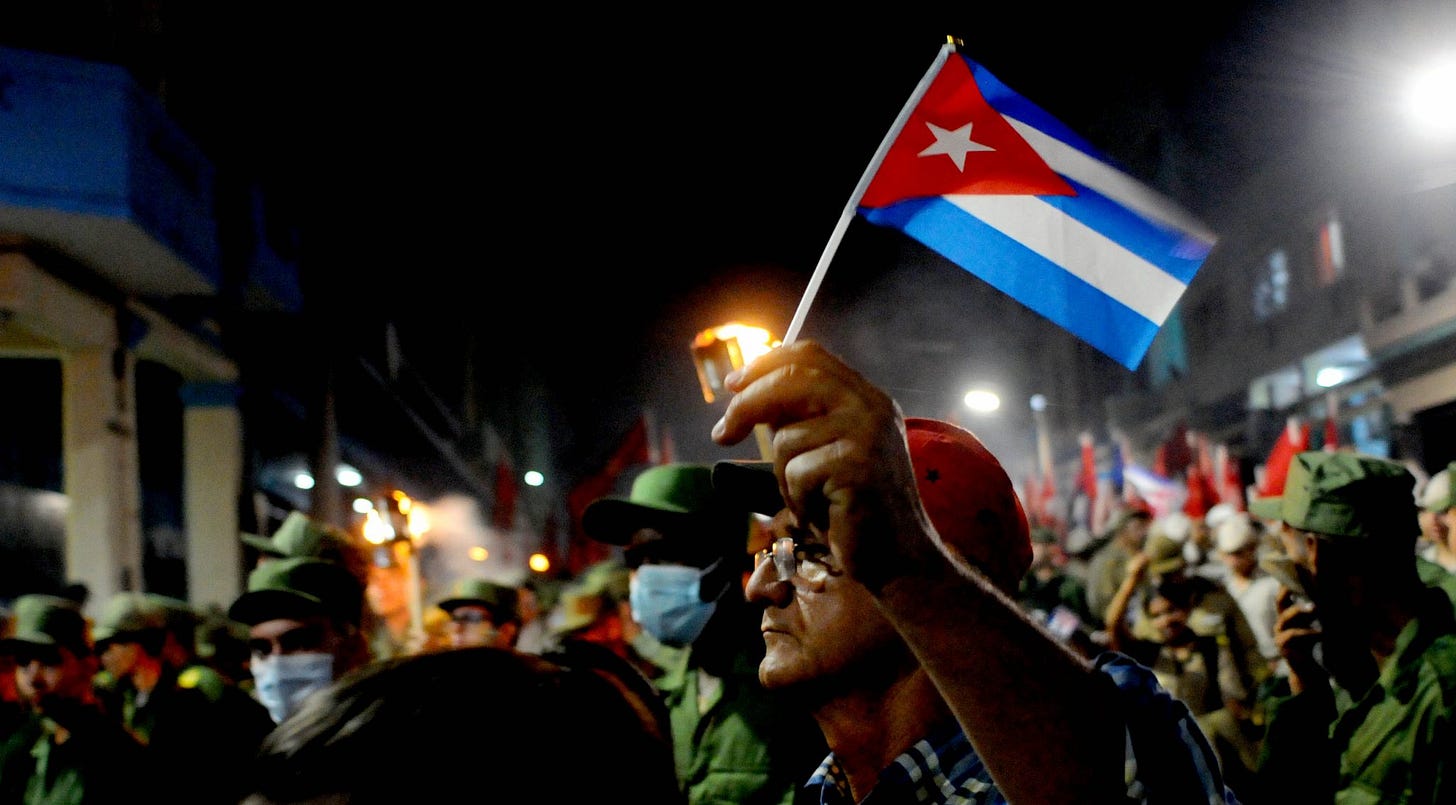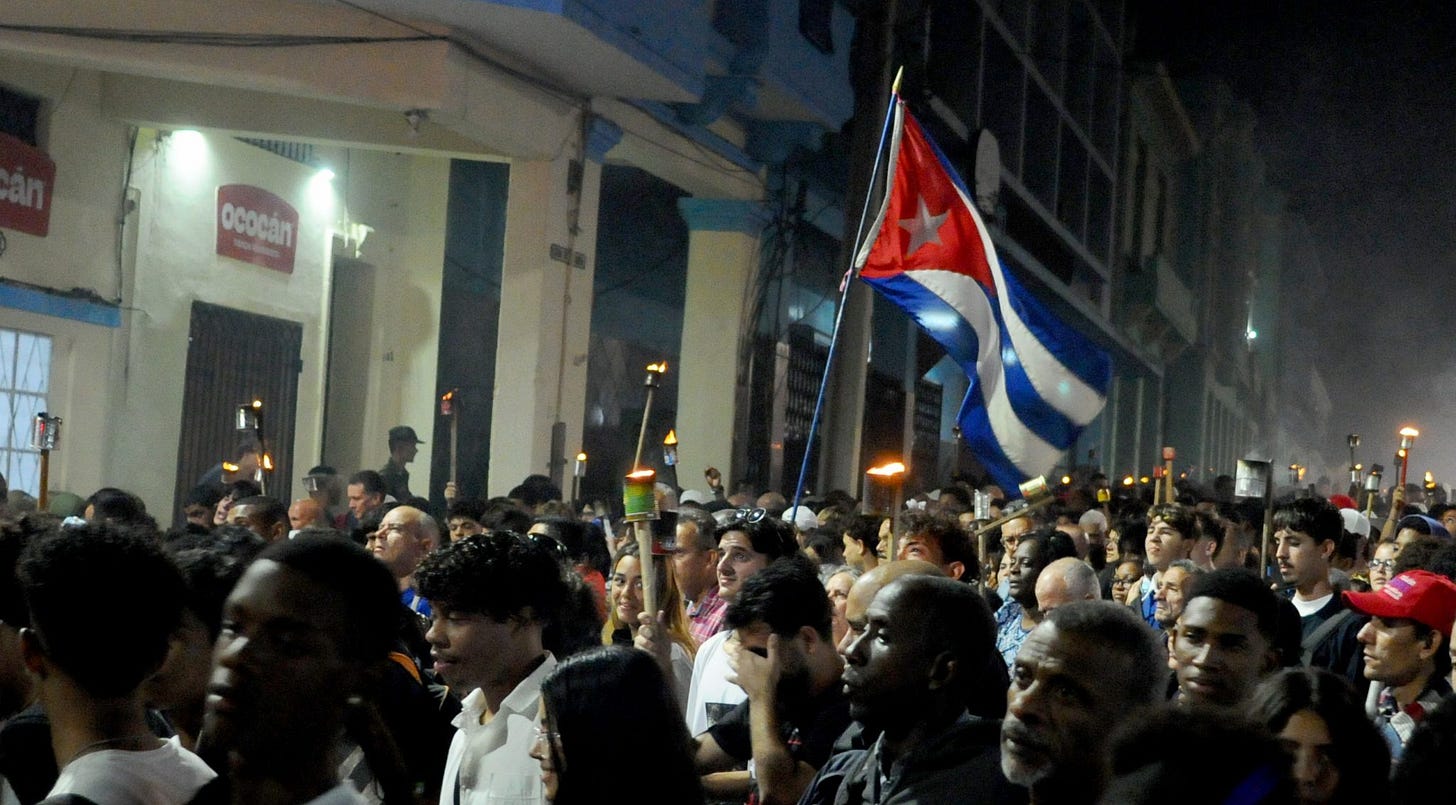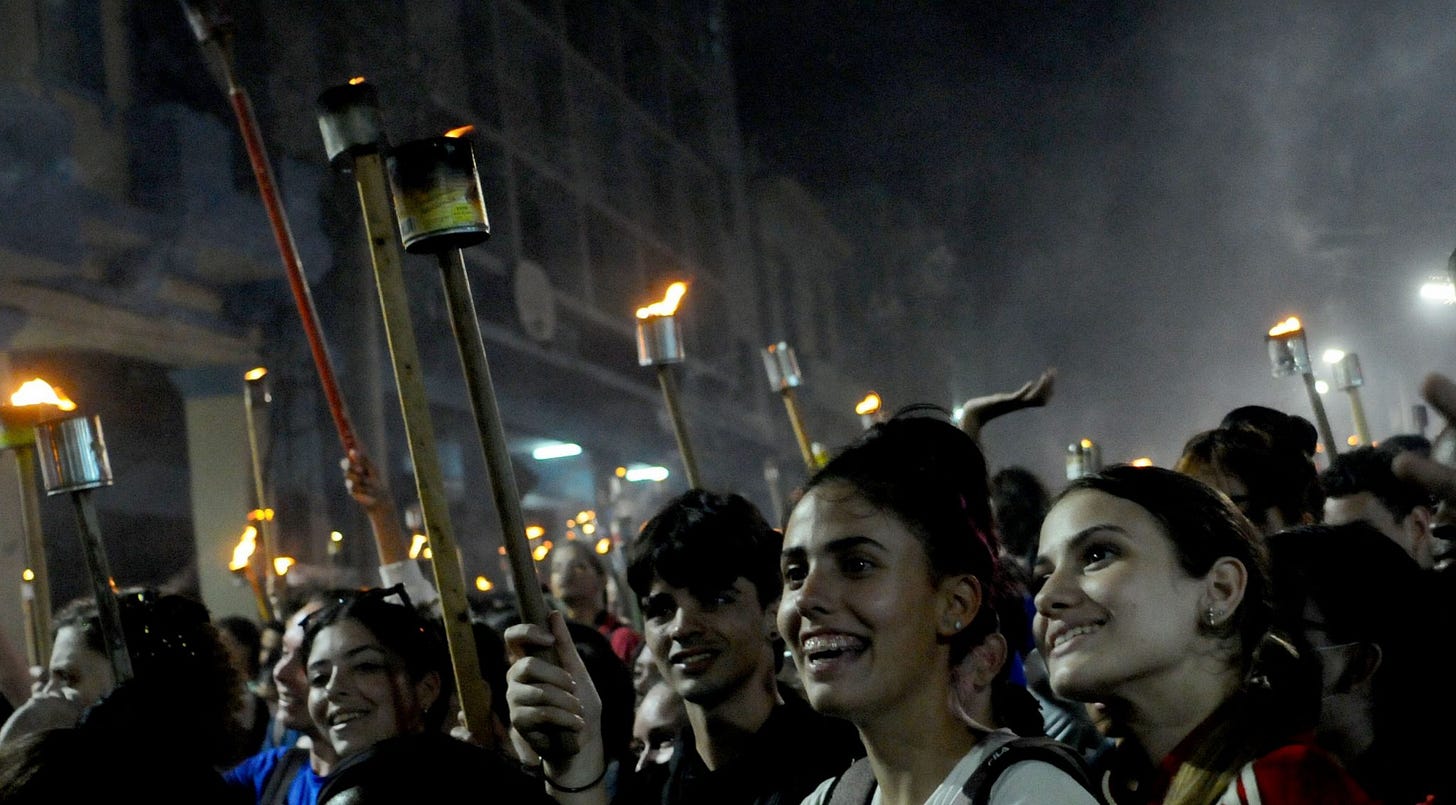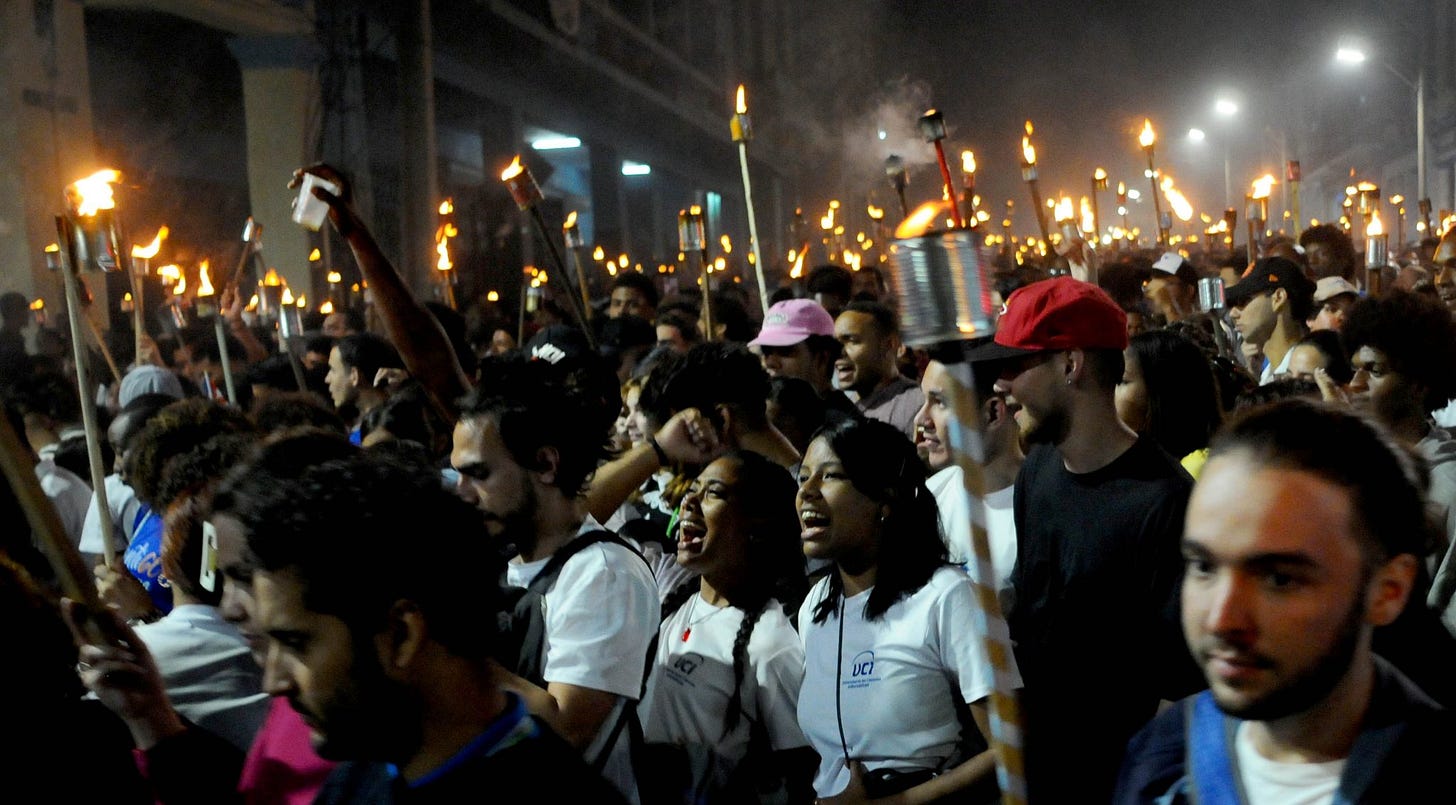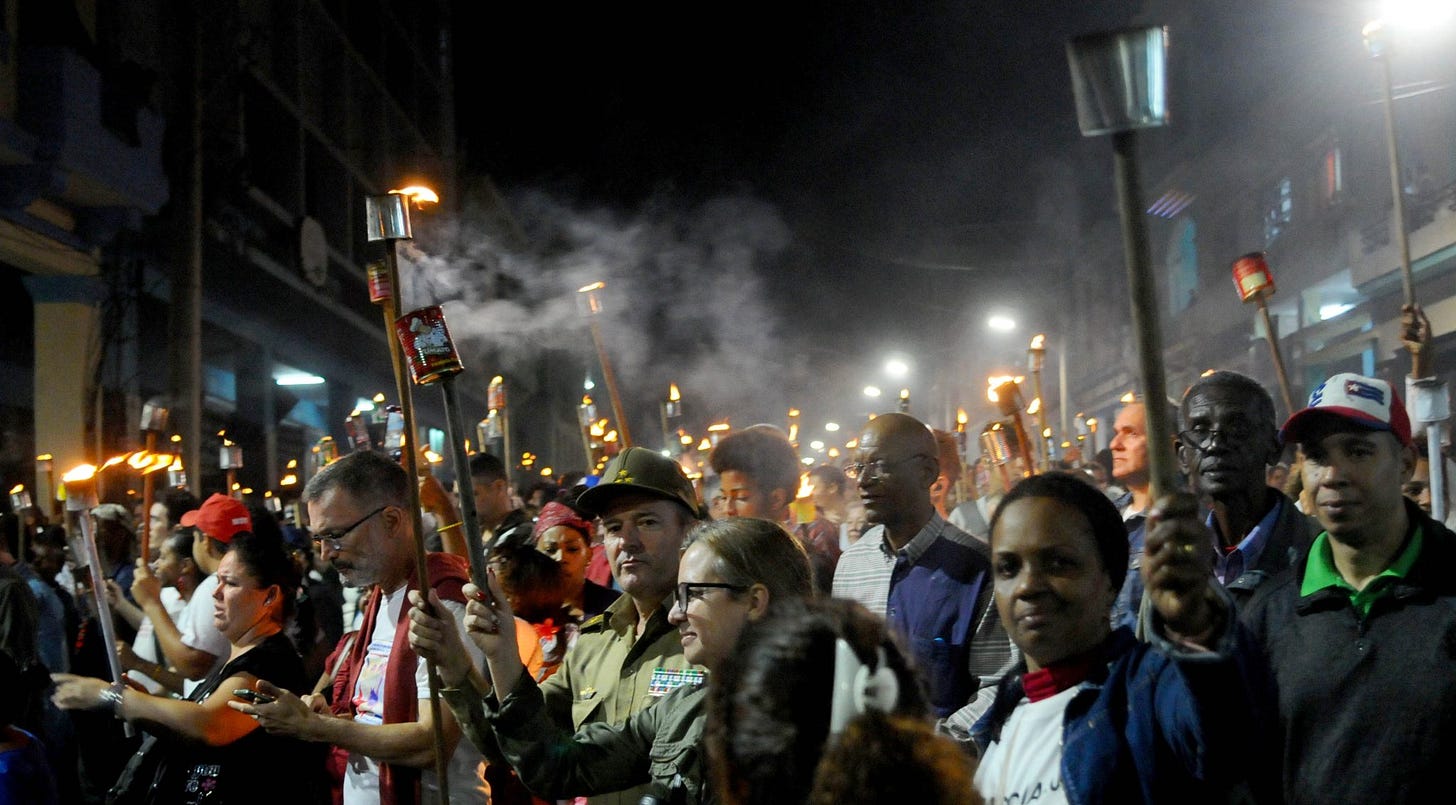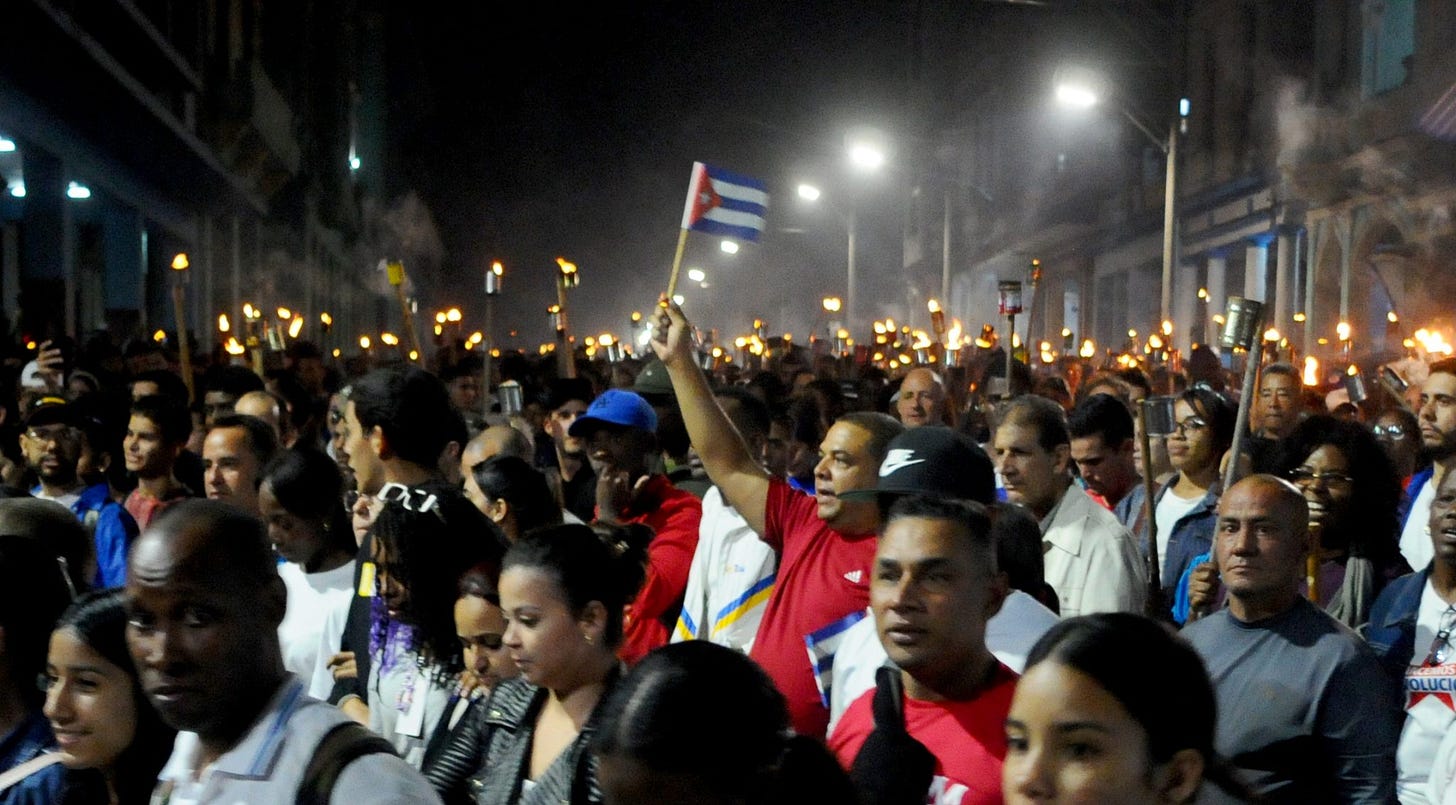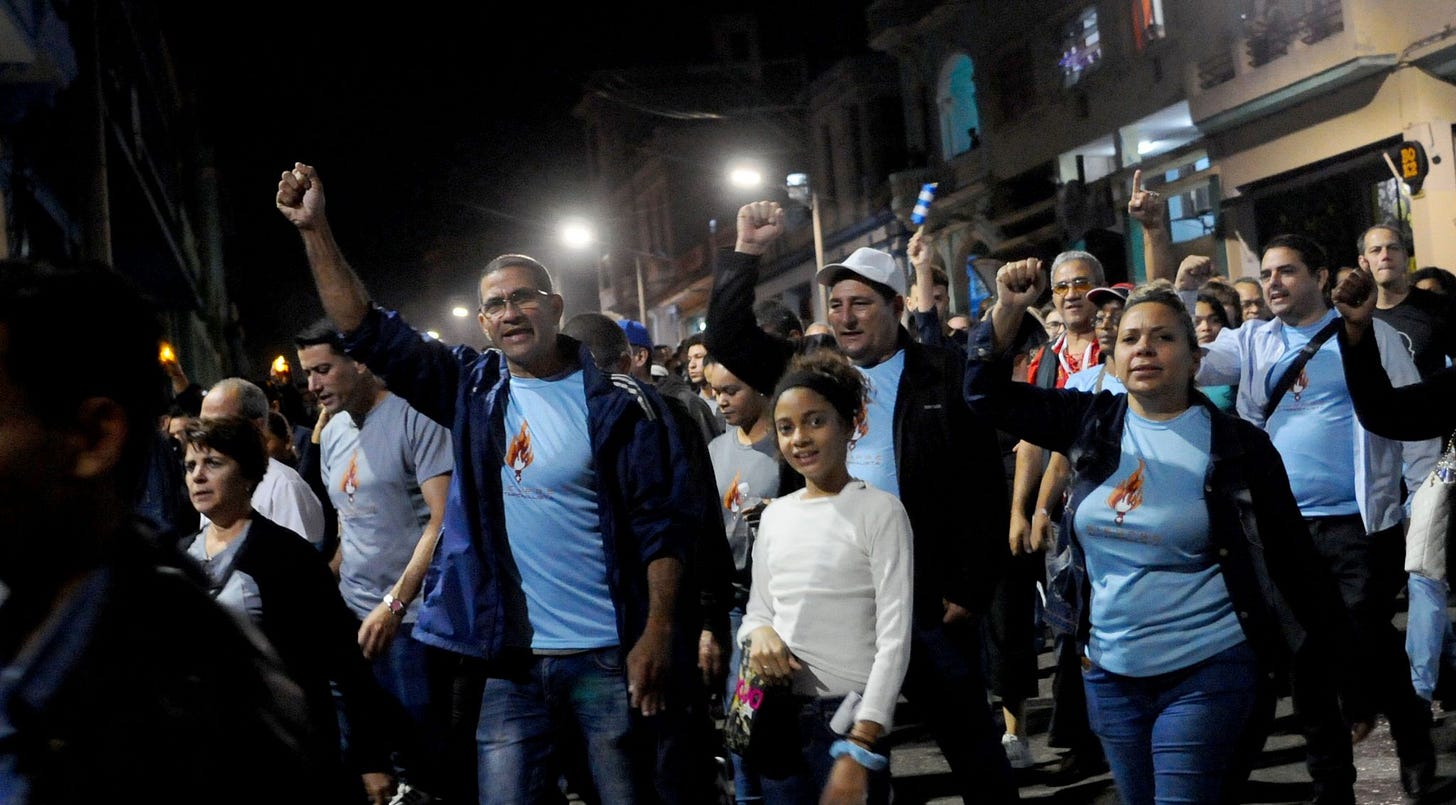Cuban youth enthusiastically participated on January 27, 2025, in the “March of the Torches,” an annual event initiated in 1953, held in commemoration of the birth of Cuban National Hero José Martí on January 27, 1853. The participants, many carrying symbolic lighted torches, marched the traditional route from the steps of the University of Havana to Fragua Martíana, where a young Martí was held in captivity for writing in defense of Cuban independence. Martí later organized the second revolutionary war against colonial Spain, initiated in 1895. He was killed in the first year of the war, the objectives of which were frustrated by the U.S. intervention of 1898-1902. Martí left an extensive body of writings, including political-economic analyses and moral teachings.
In 1953, Fidel declared Martí to be the guiding force of the new stage of revolutionary struggle. Fidel considered his own ideas to be a synthesis of Marxism-Leninism and the writings of Martí.
In an address to the assembled participants before the start of the March, Ricardo Rodríguez Gonzáles, national president of the University Student Federation, declared that today more than ever Cuba needs the thought, ideas, and virtues of Marti.

A free subscription option is available, with capacity to read, send, and share all posts. A paid subscription ($5 per month or $40 per year) enables you to make comments and to support the costs of the column; paid subscribers also receive a free PDF copy of my book on Cuba and the world-system. Ten percent of income generated through subscriptions to the column is donated to the Cuban Society for Philosophical Investigations.
Deepen your understanding of people’s democracy, a post-bourgeois form of democracy necessary for our times:
People’s Democracy in Cuba: A vanguard political-economic system




